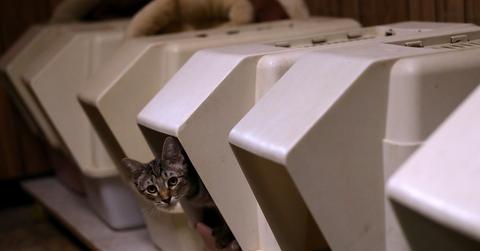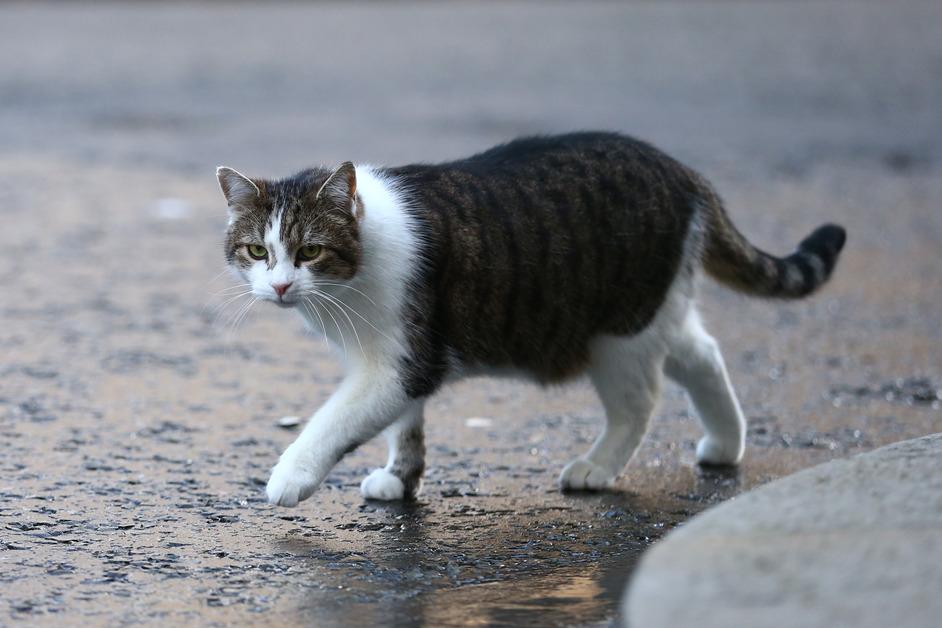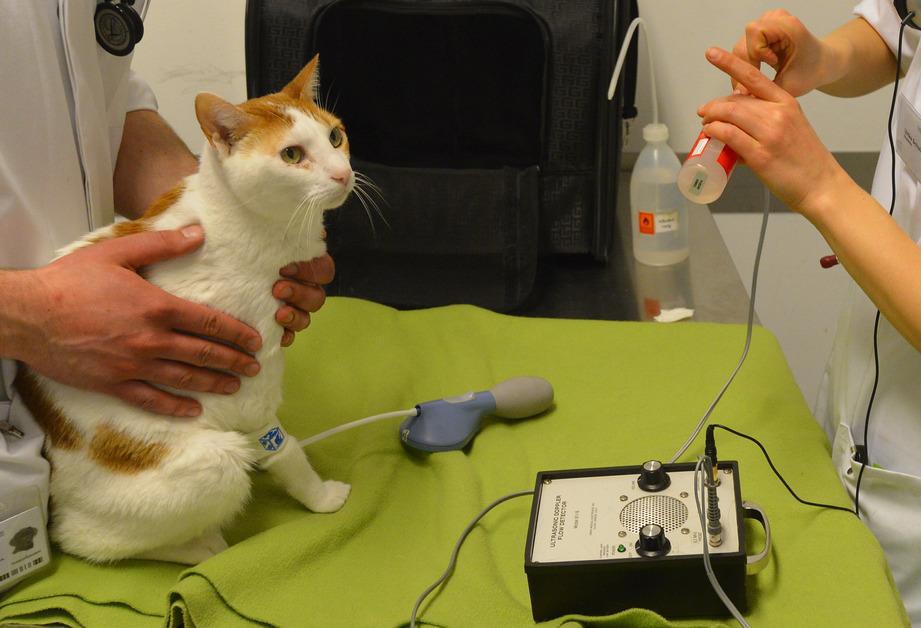Your Cat May Be Carrying This Common Parasite — Here’s What You Should Do
Published Nov. 14 2022, 1:00 p.m. ET

Coccidia is an intestinal tract infection caused by single-celled parasites. While it's common in a wide range of small mammals, coccidia in cats can be relatively serious, and unfortunately, it can be contagious to humans.
Therefore, identifying signs and symptoms is crucial, to protect your fur baby and yourself.
The most common coccidia parasites found are Isospora felis and Isospora rivolta, which are intestinal parasites that only infect cats.
Cryptosporidium parvum and Toxoplasma gondii are zoonotic, which means they are transmissible between humans and animals. These are the species that humans need to look out for.
How does a cat get coccidia?
A diagnosis of coccidiosis happens when coccidia enters the system of an animal by unintentional ingestion. According to HillsVet, sporulated oocysts are the infectious life stage of coccidia parasites which cause most cases of coccidia.
The CDC website defines oocysts as “A hardy, thick-walled stage of the life cycle of coccidian parasites.”

According to VCA Animal Hospitals, cats most commonly contract coccidia from ingesting feces infected with oocysts. Oocysts eggs mature over the course of eight hours to ten days in an environment and become more infectious to other animals over time. Apart from infection by feces consumption, an organism can also become infected with coccidia after eating another organism with the parasite. This is commonly seen when a cat consumes an infected mouse.
Kittens are especially susceptible to coccidia from exposure to their mother’s feces. Kittens with coccidia can also be contagious to other kittens, especially in a breeding facility or shelter.
What are some common symptoms of coccidia?
Unfortunately, many infected animals do not show any clinical signs. However, there are some signs to look out for:
Watery/Mucousy diarrhea
Dehydration
Abdominal distress
Loss of appetite
Difficulty breathing
Loss of balance
Seizures
Vomiting
Death (severe cases)

What to do if you think your cat has coccidia:
The first step is taking your cat to the local veterinarian to have their stool analyzed. Bring a fresh sample of their stool with you to get the most accurate results. However, because many animals infected with coccidia never show clinical signs, PetMD recommends getting pet stool checked yearly.
Infections can occur inside the home.
According to PetMD, coccidia can also be found inside the home and can live in litter boxes or even carpets for months at a time. Therefore, it’s important to make sure you are emptying and cleaning your cat's litter box to prevent any parasites from spreading.
Are there any home remedies for coccidia?
Although some blogs tout natural methods for getting rid of parasites, PetMD recommends sticking to visiting a veterinarian to get FDA-approved medications.